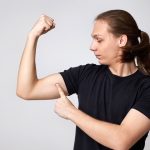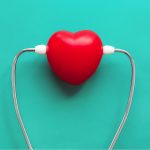Water is the second most important nutrient for life, after oxygen. More than two-thirds of the body is made up of water, with the brain being made up of nearly 85 percent water and solid tissue (like muscle) being made up of about 70 percent.
Are we drinking enough? Not by a long shot, according to a survey released on May 11, 1998, from the Nutrition Information Center at the New York Hospital-Cornell Medical Center. The survey shows that a significant number of Americans continually stay dehydrated by consuming too little water and too many beverages that rob the body of water.
While the survey of 3,003 respondents did reveal that the “average American” drinks nearly eight daily servings of hydrating beverages (such as water, milk, juice, and decaffeinated soft drinks), this is undermined by the nearly five servings of caffeine- or alcohol-containing beverages reported which cause a net loss of fluid through increased urinary output. The end result is that most Americans are probably only getting about a third of the valuable hydration benefits they need. The vast majority simply aren't drinking enough water.
Functioning as a physiologic “jack of all trades,” water has an important role in nearly every major function in the body — regulating body temperature, carrying nutrients and oxygen to cells, removing waste, cushioning joints, and protecting organs and tissues. Water also helps maintain muscle tone and acts as a natural “air conditioning” system. This clear liquid is also crucial for metabolic reactions. When the body becomes dehydrated, metabolism slows down, and electrolyte imbalances can occur, leading to a substantial decrease in energy levels.
Remember that the general recommendation of eight glasses of water a day may vary widely depending on different factors, including body size, climate, and environment, as well as living habits and activity levels. As you might guess, high levels of physical and mental activity, and excessive stress, increase the body's requirements for water. If you smoke cigarettes or drink alcohol, water is crucial in moving metabolic wastes through the body to lessen the burden on the lungs, kidneys and liver. In fact, water is called the universal solvent since it's capable of dissolving and carrying nearly any kind of substance
In order to maintain proper hydration:
1) Drink at least 8, eight-ounce servings of water each day.
2) Don't wait until you're thirsty to drink water. By this time you have already lost 16 or more ounces of your total body water.
3) Drink water all throughout the day. Carry a bottle with you as you commute to and from work, run your errands, and especially if you enjoy a day outdoors.
4) Don't substitute caffeinated or sugary sweet coffees, teas, and sodas for water, Caffeine and sweets act as a diuretic (“water pill”), causing you to lose water through increased urination. Alcohol containing beverages have a similar effect.
5) If finding time to drink water is a problem, keep a bottle of water on your desk at all times.
6) Once you start exercising or exerting yourself (like working around the house), don't stop drinking. Keep a bottle with you and drink often.
7) Don't underestimate the amount of fluids lost from perspiration. You need to drink 16 ounces of water for each pound lost following a workout.
8) Start and end your day with a serving of water. Your body even loses water while you sleep (from the moisture in your breath and the water loss through your skin by evaporation). So drink water before bed and. again when you wake up.








